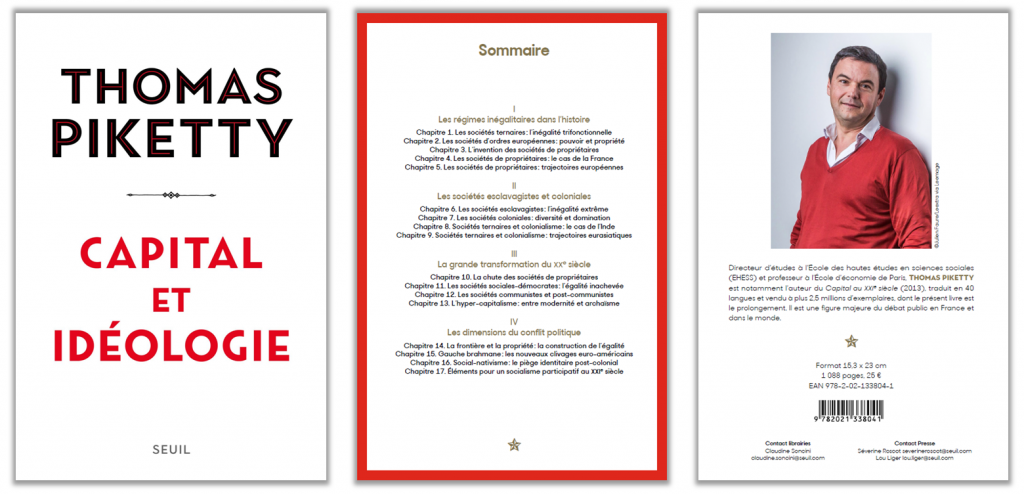

Seen in its historical context, today’s high and growing levels of inequality are a serious worry. Wherever you look, extreme inequality drained, destabilised and broke regimes.Ĭapital and Ideology is not, however, primarily a history book. Haiti’s nightmare impoverishment is partly down to the legacy of slavery and partly down to France’s determination that its former slave colony paid its ‘debt’ in full (which it did, finally, by 1950). The Russian Revolution occurred in the shadow of “extreme forms… sacralisation of private property and the rights of property owners.” (583) Refusal to contemplate “new egalitarian postnational solutions” gave rise to totalitarianism in the 1920s and ‘30s. Such warnings from the past litter the book. There is, in other words, no natural end point to growing inequality, unless you count the conflagration of world war.


By the early years of the twentieth century, inequality was at unprecedented levels, far higher than those of the ancien régime that the Revolution pushed aside. (139) By the end of the nineteenth century, half of the people who died in France had no property at all to pass on to relatives. (pp.127-131) What he and his colleagues had not expected to discover as they studied the accounts was that this concentration would get greater over the next hundred years. At the start of this period, he explains, the concentration of income and property was extremely high, with the richest 10 per cent of the population earning half the total national wage and owning 80 per cent of its wealth. Piketty began his academic career looking at income, wealth and taxation in France in the nineteenth and twentieth centuries. This time, however, in his 1,000-page follow up, Capital and Ideology, the political is more obviously personal. In spite of his heroic commitment to data, data, and more data, (in)equality is, it seems, an intimate concern for Piketty. Piketty had, after all, been economic adviser to French Socialist Presidential candidate, Ségolène Royal, in 2006. Thomas Piketty’s original, groundbreaking, block-busting, macroeconomic tome, Capital in the Twenty-First Century, first published in 2013, was transparently motivated by a deep concern about growing levels of inequality. In this long–read Nick Spencer reflects on Thomas Piketty’s ‘Capital and Ideology’.


 0 kommentar(er)
0 kommentar(er)
